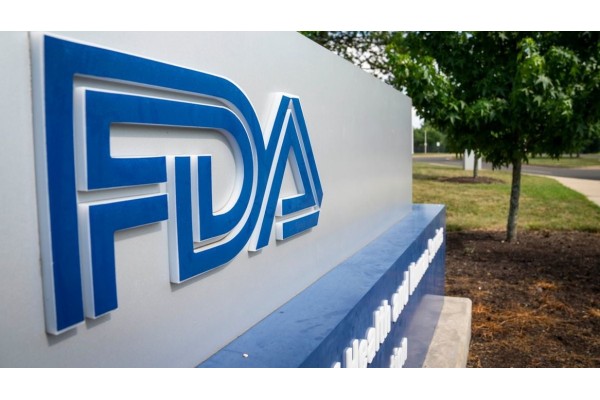BrainStorm files ALS drug application over FDA protest
April 28, 2023
Source: drugdu
 379
379
Ned Pagliarulo Lead Editor

A sign for the Food And Drug Administration is seen outside of the headquarters on July 20, 2020 in White Oak, Maryland. Sarah Silbiger via Getty Images
A yearslong disagreement between the Food and Drug Administration and a developer of an experimental medicine for ALS will get a public hearing sometime in the future, setting up another high-profile debate of what amount of evidence merits an approval for the progressive and fatal disease.
On Monday, BrainStorm Cell Therapeutics said the agency will convene a panel of outside experts to review its medicine, a personalized stem cell treatment called NurOwn. The planned meeting, which has not yet been scheduled, is the result of BrainStorm taking the rare step of requesting its approval application be filed over the FDA’s protest.
Last November, the regulator refused to review BrainStorm’s application, which was based on a late-stage clinical trial that failed to meet its main goal. However, the company argues the way the trial was designed and the types of patients who were enrolled masked the drug’s benefit. BrainStorm believes those claims are borne out by further analyses it has done after the fact.
“We have a very compelling case and we’re working very actively to prepare for the [advisory committee],” said BrainStorm’s co-CEO Stacy Lindborg in an interview.
Filing an application over the FDA’s protest is a formal process available to drugmakers following receipt of what’s known as a “refuse-to-file” letter, which details reasons why the agency found a submission incomplete or otherwise lacking. It’s a path not typically taken and doesn’t have a track record of success: a 2021 analysis by FDA officials identified four instances in 10 years in which applications were filed over protest following a refuse-to-file letter. None were approved.
Lindborg said BrainStorm took this step to get NurOwn reviewed by an advisory committee more quickly.
“The only other pathway we seriously considered was to revise the [application] and then to resubmit, which would have presented substantial delays in the overall regulatory path,” Lindborg said. “[T]he file over protest presented us with the procedure that would be the shortest time to an outcome.”
In doing so, BrainStorm has the support of the ALS patient community, which organized a petition backed by 20 advocacy groups and signed by more than 30,000 people requesting the FDA hold an advisory committee meeting on NurOwn.
Lindborg also said BrainStorm is encouraged by the flexibility shown by the FDA in approving Amylyx Pharmaceutical’s ALS drug Relyvrio last year, and in agreeing to assess for approval Biogen’s experimental treatment tofersen despite a failed study.
The same committee that will evaluate NurOwn also met last week to review tofersen, concluding in a 9-0 vote that the drug’s effect on a protein linked to nerve damage was “reasonably likely” to lead to a clinical benefit. While they weren’t convinced Biogen’s data proved toferesen’s effectiveness, their vote could push the FDA to grant a conditional clearance by its decision date of April 25.
BrainStorm may have a tougher time. The FDA has previously taken a dim view of BrainStorm’s data, saying in an unusual statement prior to the company’s application that the “data do not support the proposed clinical benefit of this therapy.”
That data came from a Phase 3 trial of 189 people with ALS who were randomized to receive either NurOwn or placebo. After 28 weeks, results showed about 33% of NurOwn-treated participants met the criteria for a response to treatment, compared to about 28% of those given placebo.
“The 4.9% absolute difference in responders was not at all statistically significant, and the small difference between the two groups was most likely due to chance,” the FDA wrote in its March 2021 statement.
BrainStorm acknowledges the study missed its primary goal, but points to further analyses that appear to show participants whose ALS was less advanced did better on NurOwn than placebo. The company also argues that, because some of the patients it enrolled had more severe impairments in function, the trial wasn’t able to easily show whether treatment was slowing their decline.
“If patients have zeros on a large range of the [functional rating] scale ... you can’t measure decline, therefore you can’t assess a treatment effect,” Lindborg said, calling it a “floor effect.”
The FDA’s views of these newer arguments are unknown. The agency doesn’t regularly make refuse-to-file letters public, leaving their characterization up to the company involved.
According to Lindborg, the agency’s response to Brainstorm flagged the trial’s failure to meet its primary goal, as well as other questions related to manufacturing. The FDA and BrainStorm have since met at least twice, both times in January, to discuss BrainStorm’s case.
Because Brainstorm is submitting its application over protest, the FDA will consider its submission a new request for approval, with a standard review clock.
By editorRead more on
- Rovaxitinib approved for marketing, filling the demand for myelofibrosis treatment March 2, 2026
- Warrant Pharmaceuticals’ active pharmaceutical ingredient receives Brazil’s first official GMP certification March 2, 2026
- Merck’s New Story March 2, 2026
- Rongchang Biotechnology has turned a profit! March 2, 2026
- Jiuyuan Gene’s “Simeglucopyranoside” for weight loss (Jikeqin®) has been submitted for market approval March 2, 2026
your submission has already been received.
OK
Subscribe
Please enter a valid Email address!
Submit
The most relevant industry news & insight will be sent to you every two weeks.



